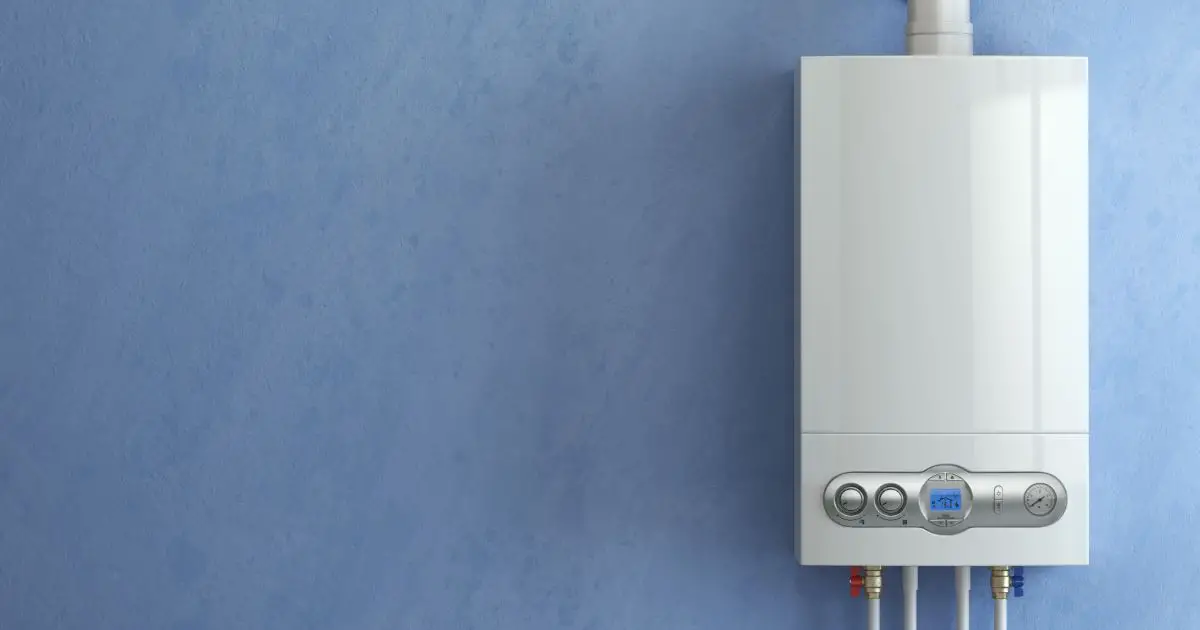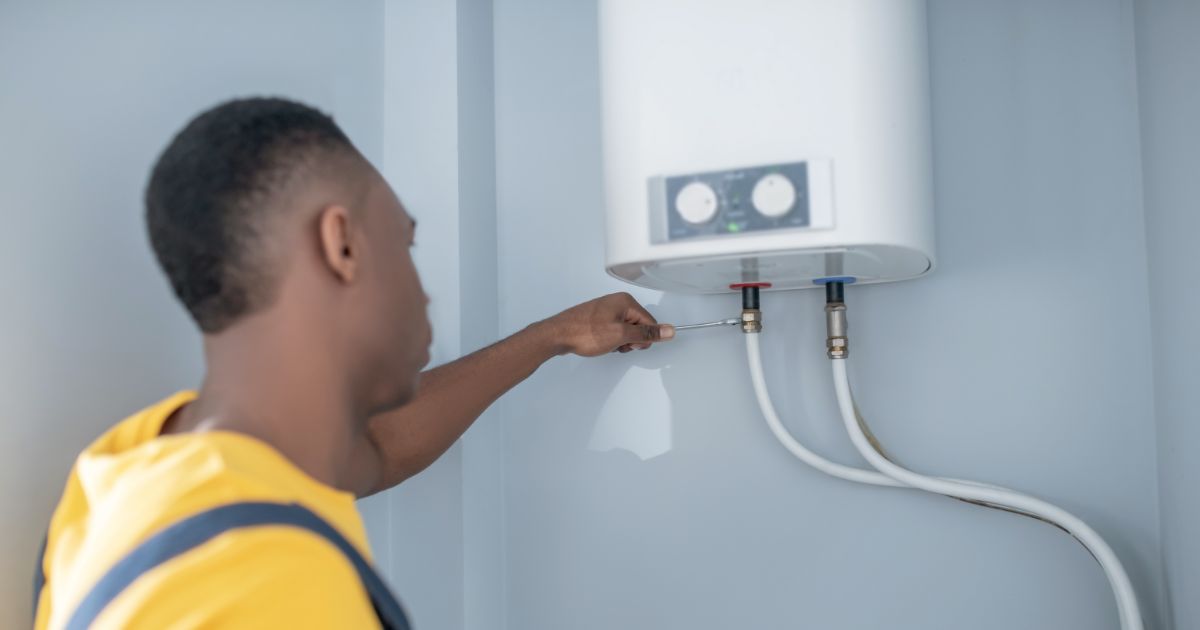11 Amazing Benefits of Tankless Water Heaters
Whether washing your face or taking a hot bath, a tankless water heater makes all water-related tasks bearable during the winter. This innovative home appliance will give you the perfect hot water supply while reducing energy costs.
Unlike traditional water heaters, tankless units only operate and heat water when you require it.
If you are considering replacing your storage water heaters with tankless ones, this post will share 11 benefits of tankless water heaters to help make up your mind. Keep reading!
Gas vs. Electric Tankless Water Heaters: Which One is Better?
Also known as instant water heaters, tankless units come in two types: Gas and electric. The only difference between the two types is the power supply.
Since electricity is more expensive than gas, electric units result in slightly higher energy bills. Whole-house electric tankless models can consume up to 25000 watts of energy per year.
Gas units are a more convenient and cost-efficient option than electric models. They are also more durable. Electric tankless heaters are still a functional option if you don’t have natural gas lines at home or if your hot water usage isn’t much.
How Do Tankless Water Heaters Work?
Tankless water heaters do not store water in storage tanks and are energy savers that don’t constantly run. They start operating only when you open the tap. When you turn on the hot water tap, cold water passes through the tankless heater’s electric or gas-powered heating chamber.
After providing the water on demand, these energy-efficient tankless units will turn off as soon as you close the tap.
Top 11 Benefits of Tankless Water Heater

People are gradually switching from their traditional tank water heaters to tankless models due to their energy efficiency, cost-effectiveness, and other advantages. Tankless water heaters offer a range of household benefits, making them the more attractive choice.
Here are 11 benefits of owning a tankless water heater:
Energy Efficiency
One of the most important benefits of installing tankless water heaters is reduced utility bills because of their energy efficiency. Storage tank water heaters constantly use energy to maintain a 40 to 50-gallon water supply at all times. In simple words, they continuously heat and store water, even when you don’t need the hot water supply.
On the other hand, tankless water heaters only provide water on demand instead of wasting gas around the clock. According to research, tankless units are 40% to 50% more energy-efficient than tank-style water heaters. On average, families can save 35% more on gas bills after going tankless.
Durability
Tankless units are more durable and have an extended life compared to conventional water heaters. The average life expectancy of tank-style water heaters is 9 to 12 years, whereas tankless models can last up to 20 years if used and maintained correctly. They often come with longer warranty periods covering repairs and replacements.
This benefit can save users from the frequent hassle of purchasing new models whenever the old heaters stop working. Going tankless will be a long-term source for your hot water supply.
Excellent Value for Money
Depending on the size and features, you will find tankless water heaters for anywhere from $350 to $1000. You may have to spend an additional $500 to $1500 more on installation costs.
The price may seem high initially, but tankless water heaters are an incredible investment. They can provide excellent efficiency and durability while cutting down utility bills. A one-time investment could give you decades of comfort, convenience, and affordability.
Small Footprint
If you live in a small home with less space to accommodate a traditional tank-style water heater, tankless units are what you need! The traditional tank models are designed to store several gallons of water. Hence, the units are large and take up more space.
Fortunately, both electric and gas tankless water heaters feature an ergonomic and space-saving design because there is no tank to store water. Since gas models need some space for ventilation, they will be slightly bigger than electric ones.
You can place them anywhere you want – outside or inside – because they don’t produce much heat. People usually mount them on walls to save even more space. Tankless heaters are also easy to relocate if you need to change location.
24/7 Hot Water Supply
Tank-style water heaters can run out of water when the tank is empty. However, tankless heaters can save you from this inconvenience. They provide a continuous supply of water without storing or wasting energy. Tankless water heaters can provide 150 gallons of hot water per hour. This means you will get the supply 24/7 whenever you open the tap.
Quick Heating
Tank-style water heaters can be inconvenient when you run out of hot water, as it can take up to 30 minutes for the tank to refill and heat the water. However, tankless water heaters are much more efficient and take just 20 seconds to build up a consistent temperature once you open the tap.
User-Friendly Installation
Tankless water heaters save you from the hassle of constant refills. They heat water without you doing anything. Similarly, the tankless water heater installation process is a straightforward task. You don’t need to install hot water plumbing systems to use tankless units.
All you will need to do is mount them to a wall next to electric or gas lines. You can install the tankless units by following simple instructions in the user manual. If you are not experienced enough, you can hire professionals to ensure the unit is grounded properly.
Safety
If you are a family with children and pets, safety should be your priority when searching for a water heater. Conventional tank heaters pose a considerable risk of overheating and explosion due to their storage capacity for large amounts of water. Mineral and gunk buildup can also cause traditional heaters to explode.
Tankless heaters, however, significantly lower the safety risks associated with explosions due to their lack of stored water. This reduces the risk by up to 90%, protecting both your home and the people living in it from damage due to overheating or explosions.
Considering the small size of tankless heaters, they won’t flood your house even if a leak happens somehow due to mineral buildup.
No Risk of Scalding
Tankless water heaters provide more efficient temperature control. This improved control eliminates the risk of hot water burning your skin during a shower or bath, making them a safer option for households.
No Exposure to Harmful Toxins
Tankless water heaters are less likely to produce harmful toxins that can affect your health and skin. That’s because they don’t store water like traditional tank-style water heaters, which can become susceptible to rust and corrosion, and the minerals can eventually make their way into your water supply.
Low Maintenance
Tankless water heaters are a great option for homeowners who are looking for a low-maintenance heating solution. They don’t require the same rigorous care as traditional tank heaters, which need servicing every six months. With tankless water heaters, you need a minimal cleaning routine once a year.
You need to flush your tankless unit to ensure the filters are clean and there is no mineral buildup in the water supply. You can DIY the cleaning process by purchasing a tankless water heater cleaning kit. Moreover, you can also flush the tankless unit using a sump pump, hoses, and vinegar solution.
Minor Disadvantages of Tankless Water Heating Units

Tankless water heaters offer a range of benefits and comforts, which we discussed above, yet they do come with a few minor drawbacks. You should be aware of the potential disadvantages that may come with a tankless water heater.
Higher Upfront Costs
The initial upfront cost of a tankless water heater is high enough to scare some buyers. Good-quality standard tankless water heaters will cost you somewhere between $800 – $1000. These prices can increase when you add in the installation costs.
However, buyers need to understand this one-time investment will help them save so much more in the future. Tankless units will last longer than traditional units and will cut down the utility bills.
Demand Limits
For most households, one tankless water heater is sufficient to meet all hot water demands. However, when managing a home with two or more bathrooms, the 11 GPM tankless unit may not be able to provide an adequate amount of hot water to satisfy simultaneous needs.
If you have a large family, you will need to install two or more tankless water heaters — for example, one for the kitchen and one for the bathroom.
FAQ
What is the main advantage of having a tankless water heater?
The most important advantage of opting for tankless water heaters is energy efficiency. They only heat water on demand to save gas and electricity.
What is the most common problem with tankless heaters?
A common problem with tankless heaters is mineral buildup. However, you can prevent this issue by following a simple cleaning routine once a year. You may need to clean twice a year if you get hard water.
Should I replace my water heater with a tankless one?
Testing your water heater can help you determine if it’s time to replace it. If you notice that the tank is old and corroded or has cracks in the sides, you may want to consider replacing it with a tankless model. While it may be a great idea to replace your water heater with a tankless one, it’s important to be realistic about the cost of doing so.
Final Words
Tankless water heaters offer many advantages compared to tank-style units. These include an unlimited supply of hot water, lower energy costs, and durability. Moreover, they provide convenience and require little maintenance, making them a great choice for households with limited space. As a bonus, they can be mounted virtually anywhere due to their compact design.
Most importantly, they keep your home and family safe from explosions, leaks, and other mishaps. Though there are a few cons, the benefits of tankless water heaters outweigh them.
Hey, I’m Adam Miller. After years of crawling through cramped basements fixing water heaters (and discovering some pretty questionable DIY attempts), I figured it was time to share what I’ve learned in a way that doesn’t involve me getting covered in dust. I started this site to help you make sense of the whole tankless water heater thing—whether you’re tired of cold showers or just want to save a few bucks on your energy bill. I like to keep things simple, practical, and if I can throw in a bad joke or two along the way, even better!